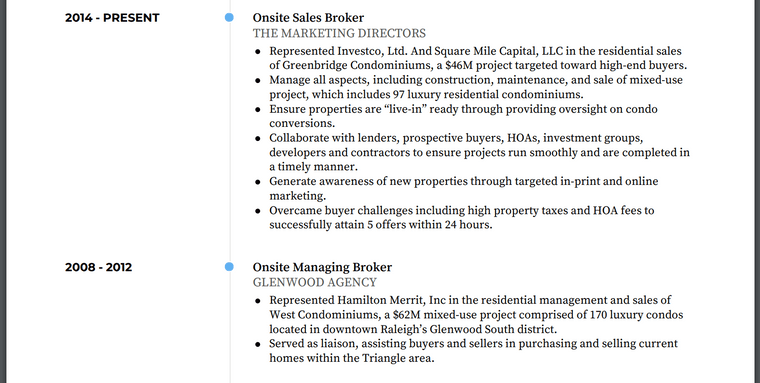
10 reasons you aren’t getting interviews

It’s a common situation for many job seekers.
You spend hours hunting for opportunities. You submit what feels like hundreds of applications.
And you don’t get asked to come in for a single interview.
Sound familiar?
When you are constantly churning out applications without seeing any results, it can be tempting to give up hope. Every job you apply for seems to have thousands of candidates more qualified than you. Getting hired can seem impossible and you may want to give up.
While it is true that the job market is competitive, there are steps you can take to maximize your chances of being invited to an interview. There are things you may be doing that—without your knowledge—are causing recruiters to reject your application, even though you are a great candidate for the role.
If you can identify why you are missing out on interview offers, you can adapt your strategy for the future. In this post, we’ll walk you through 10 common reasons job seekers lose out on interviews… and how you can fix them.
Recommended links:
- Our collection of 500+ professional resume examples.
- Our gallery of 20+ downloadable resume templates.
Reason #1: You’re not standing out from the crowd
Studies suggest that recruiters spend just 6 seconds scanning each resume. This means that your resume has only that amount of time to catch their eye. If your resume is poorly designed, hard to read, too long or dense, or just doesn’t include the right information, you’ve already lost your chance and the recruiter has moved on to the next candidate. Your resume has to stand out with its clear presentation, useful information, and professional design.
How to fix it:
Stand out to hiring managers by, quite simply, having a great resume. Our resume guide will help you understand the key things recruiters look for in a resume, and our resume layout guide can show you how to organize your resume and choose the right design. To beat the Applicant Tracking System, the software that many large companies use to filter their applications, check out our guide to Applicant Tracking Systems. When you use VisualCV to create your resume, you are guaranteed clean and clear designs to help your application stand out from the stack.
Reason #2: You’re standing out for the wrong reasons
Sometimes a resume will stand out to a recruiter… but for all the wrong reasons.
Applicants will include irrelevant, strange, or downright off-putting information on their CV.
Sometimes these mistakes are understandable. For example, in many countries it is standard to include a headshot with your resume, whereas in North America this is an error that would likely lead the hiring manager to pass on your application.
Other mistakes are less easy to understand. Inappropriate jokes, strange or irrelevant hobbies, typos, and other elements that make the candidate seem unprofessional are more common than you would expect. That none of these should appear in your resume may seem obvious, but they can all be found in this Recruiting Blogs article of the weirdest things recruiters have seen on candidates’ resumes. If your resume contains mistakes like these, employers have a very strong case for never responding to your application.

How to fix it:
Your resume and cover letter should show that you are competent and professional. Showcase your skills and experience efficiently and neatly, without any distracting and irrelevant details. If you are not certain whether your cover letter and resume have the right tone, ask someone you trust to give you an honest opinion. When in doubt, err on the side of caution. For ideas for what red flags to look out for, check out VisualCV’s article on things to remove from your resume.
Maybe you think that an injection of humour will win over the hiring manager. Perhaps you want to humanize yourself by including a few of your niche hobbies. But the effect these details will have on a potential employer can be difficult to gauge and you run the risk of alienating the people you’re hoping to impress. Even if you think you are a comedic genius, jokes are easy to misinterpret.
Include hobbies and interests only when they are directly related to the role. Related volunteer experience, for example, can be an asset to your resume, as can a leadership position in a local club that showcases skills that would benefit the position. You can save conversations about your passion for the mandolin or board games for lunch breaks once you snag the job.
Reason #3: You make spelling or grammar mistakes
This is advice that you are probably sick of hearing from every career advisor since high school, but yes, spelling and grammar really do matter. When recruiters are tasked with sorting through hundreds of applications they’re looking for quick reasons to say no. Glaring grammar and spelling mistakes are instant red flags.
Attention to detail is important. We have all heard horror stories about job seekers leaving a line about how much they want to work for Company X in an application to Company Y, or spelling the hiring manager’s name wrong in your cover letter.
These kinds of mistakes are red flags because they suggest that you aren’t serious about the job and that you haven’t taken the time to properly prepare your application. Here’s what a recruiter is thinking: “If you’re this sloppy when you’re trying to convince someone to hire you, what will you be like as an employee?”
How to fix it:
Have a trusted friend read over your application. This person should have an eagle eye for typos, missing words, and grammatical errors. If you struggle with spelling and grammar, an application like Grammarly can signal problems with your writing, too.
Double- and triple-check your application before you hit send to make sure you haven’t used the wrong company name or forgotten to delete a note to yourself. Ensuring that your resume has no errors is integral to a successful job search.
Reason #4: You don’t follow all the instructions
Does the application ask you to include samples of your work? Does it ask you to share your salary expectations in your cover letter? Do they accept resumes in .doc format or do they prefer .pdf? Are you meant to include a specific job reference code in the subject line of your email?
Each application is different, and every employer will expect you to provide slightly different information in a slightly different format. While it can be time-consuming to figure out all those details, it is important that you do. Failing to follow the application’s instructions to the letter can give a recruiter the quick ‘no’ they’re looking for so they can move on to the next candidate.
How to fix it:
Every time you sit down to start a new application, study the job description until you know exactly what the employer is looking for and how you can sell yourself as the right person for the job. Make sure you take time to look for any requirements you need to meet in order to be considered.
Maybe you highlight those requirements, or make a note of what they are. Make sure you’re clear on exactly what you need to provide, and in what format. Once again, before you hit apply, make sure you’ve supplied everything exactly as requested.
Reason #5: You’re making things difficult for the recruiter
Maybe you sent your resume in a file format the recruiter can’t open. Maybe you sent the wrong document entirely. Maybe you failed to include your contact information, so even if the recruiter thinks you’re perfect for the job, they would have to spend too much time trying to track you down online to offer you an interview. These may sound like basic mistakes, but they are all real examples of why candidates have missed out on their chance at an interview.
How to fix it:
We can’t say it enough: double check your application before you submit it. You must be certain about whether the employer asked for a PDF or a Word document, if they requested a cover letter or any work samples, and if they asked you to send in references. Employers don’t have time to chase you down to find the right documents. If your application is incorrect or incomplete they will simply move along to the next candidate.
In addition to confirming the requirements of the application, make sure to double check each individual document you send in. There can be no issues opening or reading your resume, portfolio, or anything else. If you use a Mac, ask a friend with a PC to confirm that your resume opens on their computer. If you wrote your resume in Word, try opening it in a different document editor to see how it looks. You might want to check your resume on phones and tablets as well.
When you build your resume with VisualCV, you’ll be able to share it in a variety of formats, including PDF, Google Docs and Word documents. Our resume builder also contains fields for you to include all your key information so you never miss important elements like contact details.
Reason #6: Your experience doesn’t match the roles you’re applying for
There are two significant issues that can become roadblocks when it comes to experience.
Firstly, you may not appear qualified for the role. This can be a challenge if you’re new to the workforce or if you’re trying to switch fields. Hiring managers are looking for candidates will all the right qualifications.
Secondly, you may appear overqualified for the role. This can happen if a hiring manager thinks that the role you are applying to is a step down from your former position. Recruiters and hiring managers worry that an overqualified candidate will become bored with the role and quickly move on, forcing them to begin the lengthy and often costly process of hiring a new candidate all over again.
While it is certainly possible to be overqualified or underqualified for a position, it is just as likely that you simply haven’t made a strong enough case for why you are the right fit. If you haven’t correctly anticipated the employer’s needs and customized your resume to suit, you may be giving the hiring manager the wrong idea about your experience.
How to fix it:
If you’re worried that you appear underqualified:
Be honest with yourself. If you are applying to jobs for which you are clearly unqualified (for example, if you lack the mandatory requirements for education or certifications) you may want to consider targeting different roles.
If you think, however, that you do have the necessary skills but are not selling yourself effectively, there are steps you can take to improve your resume.
- If you need general help writing your resume, check out VisualCV’s Resume Guide.
- If you are a new grad or looking for your first job, check out these 13 Tips On How To Write A CV When You Have No Experience.
- If you are moving into a new field, check out our guide on How to Write a Career Transition CV.
Whatever your situation, remember to tell the story of how your skills and experience would make you a great fit for the job in question. Highlight how skills from your volunteer, academic, or previous work experience are relevant in this role.
If you are worried that you appear overqualified:
When you appear to be overqualified for a position, “demonstrate how a role will help you develop, and show how you can be an asset”, advises Stacy Pollack, Learning Specialist and writer at Glassdoor. Frame your application as a “win-win” situation, emphasizing how the organization would benefit from your experience, but also why this role will help advance your own skill set. Show that even though it may seem like you have more experience than what is necessary, this position can still be a valuable learning opportunity for you. Demonstrate your enthusiasm for the company and the role.
If you have a compelling reason for an unconventional career move (for example, you are hoping to switch fields and build a new career path, or you are looking for a part-time role so you can spend more time with your family), you may want to include those details as part of your cover letter. This may help reassure recruiters that you are serious about the job.
Reason #7: You have unexplained gaps in your employment history
There are many reasons why you might have gaps in your employment.
Maybe you took time off work to go back to school, or to raise kids, or for health reasons that are now resolved.
But there are also other, less easily-explained reasons for resume gaps. These are what make employers wary. Without any explanation, managers may fill in these gaps with the worst case scenarios. What, they wonder, are you trying to hide? A job you don’t want them to know about? Prison time? The fact that you were fired?

How to fix it:
The best way to deal with gaps in your employment history is to be upfront about why you took time away from the workforce. Don’t leave potential employers guessing. Be honest and show that even though you have not worked in a while, you are still a great employee.
Use your resume and cover letter not only to explain why you weren’t working for a period of time, but also, where possible, how you kept your skills and knowledge current during the gap. Think about any volunteering or community work you did during your time away from work. What experiences can you highlight? How have you maintained your skills while unemployed? This way you can address any potential questions from employers before they become issues.
Reason #8: You aren’t highlighting your accomplishments
Career advice columnist Alison Green argues that the #1 reason you aren’t getting an interview is because “your resume doesn’t indicate that you’ll excel at the job.”
Too often, people write their resume as a boring list of job titles and duties. But if you take this approach, all you’re doing is sharing your employment history. You aren’t telling them anything about how well you performed or what unique qualities you bring to each position.
There is a maxim among recruiters that past behaviour is the best predictor of future behaviour. When an employer looks at your resume, they want to see examples of your past behaviour that showcase your ability to achieve similar results for them in the future.
How to fix it:
For each role you include on your resume, you be sure to emphasize your achievements in that role. As we write in our VisualCV Resume Guide, focus on accomplishments, not duties.
Think about any measurable successes that you achieved during each job. For example, if you launched a marketing campaign that led to a high conversion rate, bringing in profit for the company, include those numbers. If you were able to introduce a new process that improved efficiency and saved the company time and/or money, highlight that.
If you are wondering which numbers to include, think about any examples where you can mention the following:
- Financial wins: Highlight ways in which your actions helped save or make the company money. If relevant, you can also highlight budgets you managed.
- Non-financial wins: Demonstrate how your actions helped boost productivity or create efficiencies within the company.
- Metrics improved: Include examples of key metrics improving as a result of your work. For example: increasing customer satisfaction scores or a reduction in wait times.
- Meeting or beating objectives: Where projects you worked on met or exceeded expectations, quantify this on your resume. For example, projects that you completed under budget or exceeded their revenue goal look great on a resume.
Even if you have a job where it would be difficult to put your achievements into numerical terms, you can still highlight your accomplishments. Alison Green advises asking yourself: What did you accomplish in this job that someone else wouldn’t have? Where did you make a difference in this role? Focusing on these questions will help you sell yourself to prospective employers.
You can also briefly outline your accomplishments in your cover letter. Here, you can demonstrate to the hiring manager or recruiter how your previous experiences will serve them in the future. You can use the STAR technique (__S__ituation, __T__ask, __A__ction, __R__esult) to help you clearly communicate your experience in both your cover letter and your resume.
Reason #9: You aren’t targeting your applications
Recruiters read so many job applications, they can spot a generic, un-targeted resume from a mile away. To impress recruiters and employers, you need to carefully target your application to each position. The ‘spray and pray’ method of sending out the same generalist resume with every application simply doesn’t work. Each application must demonstrate how your experience matches exactly what the company is looking for.
How to fix it:
How do you target your resume and cover letter? Our top tips include:
- Using keywords from the job listing
- Removing irrelevant experience from your resume
- Checking out the company’s website and matching their tone (you can also look at their mission statement and values for more keyword clues)
- Reordering your skills section to match the job requirements
Good news: you don’t have to rewrite your resume from scratch every time you apply for a new job. Instead, use VisualCV to create a master resume, which you can then customize to perfectly target each position you apply to.
Reason #10: Your online presence is raising red flags
60% of employers research job candidates online. And while you may think you have your social media privacy settings on lockdown, employers can likely still find plenty of information about you. In the age of the internet, true privacy is never guaranteed. For this reason, it is important to keep all of your profiles squeaky clean.
Career expert Alison Doyle at The Balance notes some of the top things employers don’t want to see on your social media profiles, including:
- Negative posts about your current employer
- Controversial or discriminatory content
- Photos that show you engaging in undesirable activity (for example, if your profile picture shows you in ‘party mode’ it’s time to switch it with something more professional)
- Groups and apps that might paint a negative picture of you
Over 36% of companies admit that they have disqualified a candidate because of something found on social media. Look at your profiles with an honest eye, and take this seriously.
How to Fix It:
First and foremost, take a good look at your current social media presence. Know what shows up when you Google your name. Take time to untag or delete anything you wouldn’t want a potential employer to see, and double check your privacy settings.
Then, to guarantee you make the right impression when recruiters look you up on Google, check out our Ultimate Guide to Optimizing Your Digital Footprint. This will help you go beyond damage control and enable you to use your online presence as an asset in your job search.
Conclusion
Searching for a new job is tough. Sending out application application without any interviews is frustrating. With these tips you can maximize your chances of making it to the interview stage. The important thing is to not give up hope and to not give into frustration and anxiety. Check out our How To Get a Better Job Guide, continue to refine and improve your applications, and keep looking for irresistible opportunities. Your hard work will pay off in the long run.
- Reason #1: You’re not standing out from the crowd
- Reason #2: You’re standing out for the wrong reasons
- Reason #3: You make spelling or grammar mistakes
- Reason #4: You don’t follow all the instructions
- Reason #5: You’re making things difficult for the recruiter
- Reason #6: Your experience doesn’t match the roles you’re applying for
- Reason #7: You have unexplained gaps in your employment history
- Reason #8: You aren’t highlighting your accomplishments
- Reason #9: You aren’t targeting your applications
- Reason #10: Your online presence is raising red flags
- Conclusion

Written By
Ben Temple
Community Success Manager & CV Writing Expert
Ben is a writer, customer success manager and CV writing expert with over 5 years of experience helping job-seekers create their best careers. He believes in the importance of a great resume summary and the power of coffee.

Don't let these red flags get in the way of your application. With this guide to CV red flags, you will know what problems to look out for and how to fix them.
October 2, 2020
Read Post

Community Success Manager & CV Writing Expert

No experience? No problem! We show you how to write your CV when you have zero or no experience. Read on to find our 13 best tips and tricks.
September 25, 2020
Read Post

Community Success Manager & CV Writing Expert

You may not always know who will be reading your cover letter, but it's still important to address it the right way.
October 7, 2020
Read Post

Community Success Manager & CV Writing Expert
Copyright ©2024 Workstory Inc.